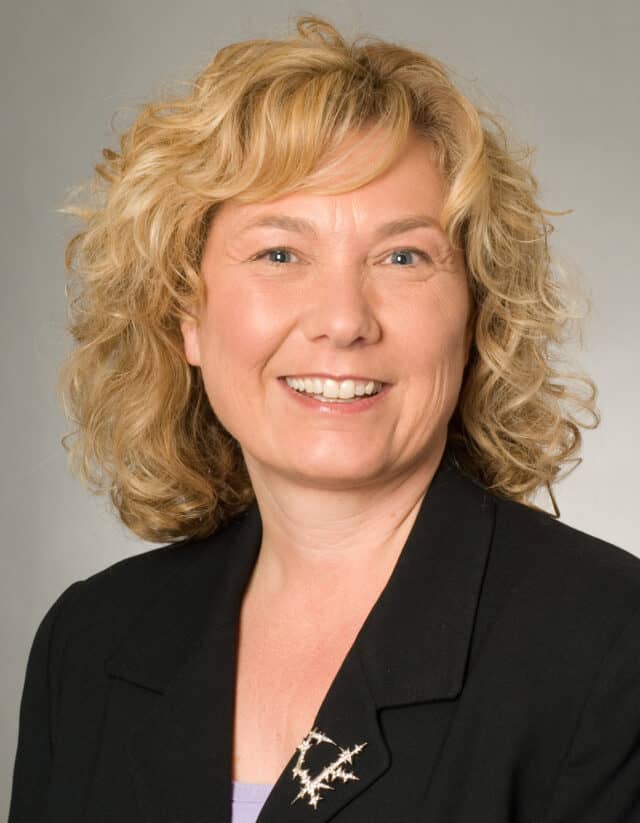Discover one CEO’s perspective on innovation, technology and the future of healthcare
Terry Zysk, CEO LiveProces, has spent much of her career working with healthcare professionals across the industry. As a technology enthusiast, she envisions the future of healthcare will be shaped by leveraging the latest advances in technology. Founded in the aftermath of Hurricane Katrina, LiveProcess is a market leader in healthcare emergency solutions. As the company grew, it expanded its offerings to include real-time situation management tools that hospitals use daily to connect information, people and resources.

Recently, we had a chance to sit down with Terry and get her perspective on how the pandemic changed healthcare IT forever and how health systems can better prepare to innovate and rapidly adapt to changing situations in order to thrive.
What way did COVID-19 change healthcare IT forever?
While the pandemic placed enormous burdens of our healthcare system, it finally broke down the barrier to the adoption to virtual care. Previously, there were many barriers to mainstream adaption including limited reimbursement, privacy and trust issues, and connectivity. Covid has forced us to realize that many health interactions do not have to be conducted in person and that healthcare can be delivered virtually through technology. As such, it’s now been adopted as mainstream.
What made this single change so momentous?
From a patient’s perspective, it has made healthcare accessible during a state of emergency. Patients have been able to receive care while maintaining social distancing, and avoid overburdening emergency departments, and urgent care centers at this time. In addition, it is changing how hospital personnel and visitors check in on patients. Previously, staff would visit patients in their rooms, stand at the edge of their bed and discuss their current situation. Now this can be done through online meeting rooms and visitors can engage patients via online chats. This capability was born out sheer survival, so that care could be delivered when not everyone is able to physically go into hospital.
For the health care teams, it has made them realize that they can work virtually now too. Organizations have discovered that their team members don’t always have to be in the same place at the same time to provide quality care. Hospital staff has learned how to adapt. The big shift is that the pandemic forced people to rely on technology tools across the healthcare organization. It’s not just for the doctors who are providing advanced surgical procedures.
How might this change evolve over time?
Over time I expect that we will know not only know how to work virtually, but how to adapt more dynamically. We will be able to change at a moment’s notice because we’ve learned how tools have enabled us to work virtually and collaboratively. Now we will bring those tools into our daily workflow to adapt to changing situations in real-time. We will leverage technology in ways it hasn’t been leveraged before because some of the fear of change has gone away.
We will be able to transform our healthcare delivery mechanism to be adaptable and flexible moment by moment. For example, if a hospital realizes real-time that it needs to expand its capability to handle more patients or that vaccines need to redistributed to another hospital where there is a critical demand. Currently, hospital staff significantly have to increase their workloads to cover these needs in the short terms because they cannot wait three more days for the next shipment of medicine to come in.
Is there anything else you would like to add?
I am excited to be in this domain and to be part of a technological revolution that can actually make a difference right now. I am a technologist at heart and see the vision of what is possible and what can be accomplished in healthcare by leveraging communication, collaboration, and situation management technology to enable real time response to healthcare. Hospital CIOs will likely be more receptive to this kind of technology now and consequently, we can actually transform healthcare, so that it’s more efficient and effective and provides optimal delivery for the best outcomes.
About Terry
Terry Zysk is CEO of Live Process and has extensive experience leading healthcare businesses. She is a results-driven senior executive with proven abilities to facilitate sustainable business growth through innovative leadership. She has seen three start-ups acquired, two by Fortune 100 companies.
Prior to LiveProcess, Terry was the senior vice president of operations at MedVentive, which was acquired by McKesson; CTO at Health Dialog where she oversaw corporate technology operations for the $250M care management, healthcare analytics, decision support, and health coaching provider; and vice president provisioning business operations at Sentillion, Inc. (now Caradigm), a leading provider of identity and access management solutions to the healthcare industry. Terry holds a bachelor’s degree in organizational management from Daniel Webster College.
Digital Health Buzz!
Digital Health Buzz! aims to be the destination of choice when it comes to what’s happening in the digital health world. We are not about news and views, but informative articles and thoughts to apply in your business.


